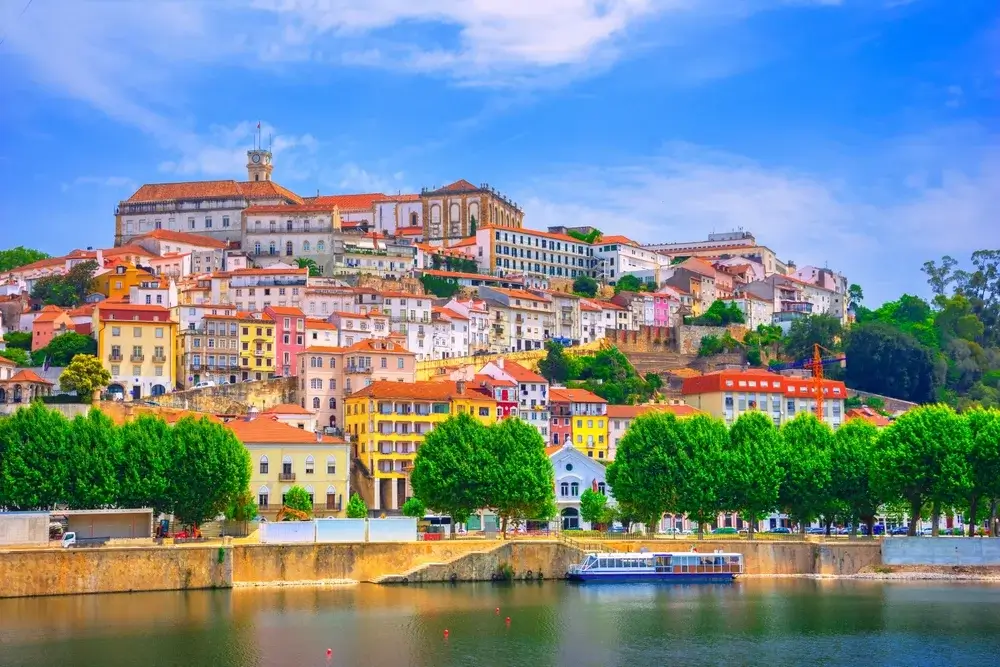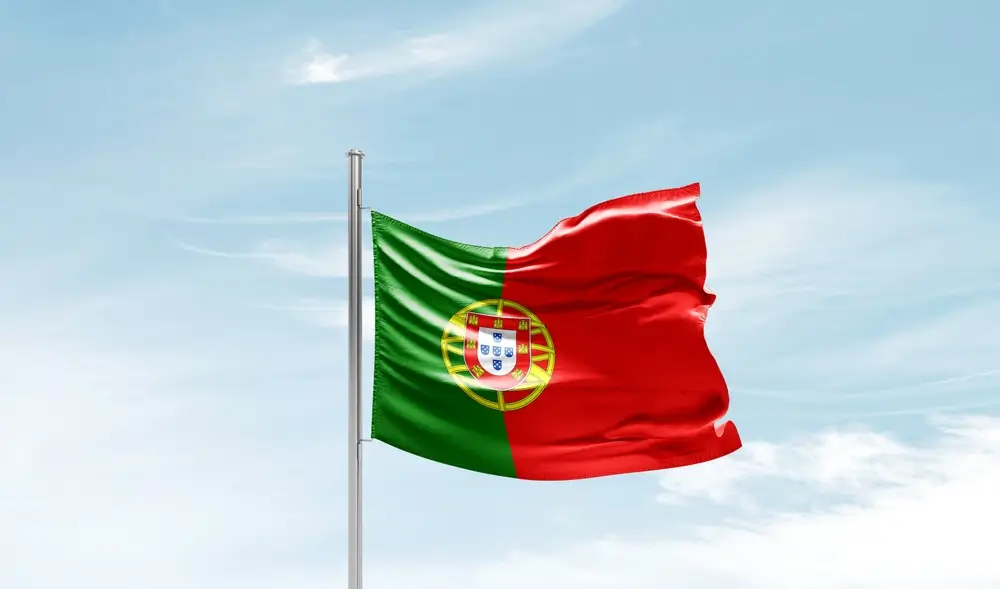Portugal
Portugal Country Guide

Portugal is a country located in the west of Europe, on the coast of the Atlantic Ocean. Known for its historical wealth, stunning landscapes, and lively culture, this country attracts millions of tourists every year. Portugal is famous for its rich maritime history and is known as the place where world-class exploration began. The country offers historical and architectural wonders in every corner. There are many different places worth seeing, from castles to palaces, from old cities to modern ports. In addition, Portugal's magnificent beaches, famous cuisine featuring delicious seafood, renowned Portuguese wines, and traditional Fado music also attract visitors. Everyone who visits Portugal is impressed by the charming atmosphere and friendly people of this unique country.
Things To Know Before Going To Portugal
- Bring Cash: While credit cards are widely accepted, many smaller businesses and tourist shops have minimum card requirements. Having euros on hand will be helpful for small purchases.
- City Transport Card: Invest in a city transport card for easy access to Lisbon's subway, trams, buses, and elevators. It's a convenient way to get around the city.
- Local Attitudes: Be aware that Lisbon has undergone gentrification, which may affect local attitudes towards immigrants. While most Portuguese are welcoming, some may have reservations unless immigrants directly contribute to improving their quality of life.
- Using the Lisboa Card is much easier than buying individual Metro tickets and quickly pays for itself through savings on transit costs.
Cultural and Local Portugal Tips
- No Tipping Culture: In Portugal, there's no tipping culture; tipping is not expected or required for services like dining or taxi rides.
- Late Evening Meals: Keep in mind that in Portugal, the evening meal is typically enjoyed around 9 PM; earlier diners may find some restaurants closed or quiet.
- Learn Common Phrases: Making an effort to learn a few common phrases like "bom dia" (good morning), "obrigado" (thank you), and "adeus" (goodbye) will help you communicate and may earn you some friendly smiles from locals.
- Coffee Culture: When ordering coffee in Portugal, be aware that asking for "coffee" will get you an espresso by default; there are about 20 different types of coffee, so find one you like and memorize its name, such as a "galão," which is coffee with milk.
Is Portugal Expensive To Visit?
Portugal is certainly more expensive than it used to be. On the other hand, it is still one of the most affordable countries in Western Europe. On average, a trip to Portugal costs between €62 and €155 per person per day for a mid-range budget during the summer.
Is Visiting Portugal Worth It?
Yes, Portugal truly is an incredible country for visitors, offering something for everyone: culture, beaches, fresh seafood, architecture, wine, nightlife, surfing, the Portuguese language, Fado music, and so much more. It's a destination that captivates and delights travelers with its diverse attractions and rich heritage.
Is Portugal Good For Honeymoon?
Portugal is an excellent destination for a honeymoon. The country offers a perfect blend of breathtaking beaches, lush mountain ranges, eclectic architecture, rich history, and a vibrant food and wine scene, making it an ideal romantic getaway for newlyweds.
Is Portugal Safe to Visit?
Portugal is the seventh safest country in the world according to the Global Peace Index and is a secure destination for travelers. While travelers should exercise normal safety precautions, such as being mindful of their surroundings to prevent pickpocketing and respecting local laws and customs, overall, Portugal is a safe and attractive destination to visit.
Are Portugal People Friendly?
Portuguese people are known to be very friendly and helpful. They welcome tourists and are always available to help if needed.
Best Cities in Portugal
Here’s your fast Portugal city guide depending on where city you are planning to visit:
City | Best For | Best Attractions |
| Lisbon | History & Culture | Belém Tower, Jerónimos Monastery, São Jorge Castle, Alfama District, Rossio Square |
| Porto | Food & Wine | Ribeira District, Port Wine Cellars, Livraria Lello, São Bento Railway Station, Clerigos Tower |
| Algarve | Beach Lovers | Praia da Marinha, Ponta da Piedade, Benagil Sea Cave, Lagos Old Town, Falesia Beach |
| Sintra | Romantic Getaways | Pena Palace, Quinta da Regaleira, Moorish Castle, Sintra National Palace, Monserrate Palace |
| Madeira | Nature Enthusiasts | Levada Walks, Pico do Arieiro, Monte Palace Tropical Garden, Cabo Girão, São Vicente Caves |
| Azores | Adventure Seekers | Sete Cidades Crater Lakes, Mount Pico, Furnas Valley, Whale Watching, Lagoa do Fogo |
| Évora | History Buffs | Roman Temple of Évora, Cathedral of Évora, Chapel of Bones, Almendres Cromlech, Évora Historic Centre |
| Coimbra | Academic Vibes | University of Coimbra, Coimbra Old Cathedral, Joanina Library, Monastery of Santa Clara-a-Velha, Portugal dos Pequenitos |
Lose yourself in the charm of hotels in Portugal!
Must-See Portugal Attractions
Here are all the top Portugal attractions you shouldn’t miss during your trip:
- Jerónimos Monastery: Explore Lisbon's iconic 16th-century monastery, a masterpiece of Manueline architecture symbolizing Portugal's maritime history.
- St. George's Castle: Step back in time at Lisbon's historic 11th-century castle, offering panoramic views of the city and the Tagus River.
- Alfama District: Wander through Lisbon's oldest neighborhood, known for its Fado music, colorful buildings, and authentic Portuguese atmosphere.
- Lisbon Oceanarium: Immerse yourself in Europe's largest aquarium, home to over 15,000 marine creatures, perfect for nature lovers and families.
- Quinta da Regaleira: Experience a fairytale at Sintra's Quinta da Regaleira, a UNESCO site with enchanting gardens and mysterious tunnels.
- Douro Valley: Discover the scenic beauty of the Douro Valley, famous for its terraced vineyards and historic wine estates.
- Algarve: Experience the stunning beauty of the Algarve region's coastline, a paradise for beach lovers and outdoor enthusiasts.
- Azores: Embark on an adventure to the Azores, known for lush landscapes, crater lakes, and unique biodiversity, perfect for nature enthusiasts and hikers.
Where is Portugal?
Portugal is located on the Iberian Peninsula in Southwestern Europe. It shares a border with Spain to the east and north, while the southern and western parts are bounded by the Atlantic Ocean, giving it a vast coastline.
What is the Capital of Portugal?
The capital of Portugal is Lisbon. Lisbon, also known as Lisboa in Portuguese, is not only the capital but also one of the oldest cities in the world, with origins dating back to 1200 BC. Situated on the northern shore of the River Tagus, Lisbon is mainland Europe's westernmost capital city, making it a significant cultural, economic, and political center in Portugal.
Languages Spoken in Portugal
The official language of Portugal is Portuguese. While Portuguese is spoken by the vast majority of the population, there are also other languages spoken in the country. Here is a list of the most spoken languages in Portugal:
- Portuguese: 96%
- English: 10%
- Spanish: 10%
- Mirandese: Less than 1%
Time Zone of Portugal
Portugal's time zone is called Western European Time Zone (WET), which is UTC+0. However, during daylight saving time, Portugal switches to Western European Summer Time (WEST), which is UTC+1.
What Currency Does Portugal Use?
Portugal uses the Euro (€) as its official currency.
Portugal Flag

The Portuguese flag consists of two vertical stripes of green (on the hoist side) and red (on the fly side), with the national coat of arms centered on the dividing line. The green stripe takes up two-fifths of the flag's width, while the red stripe occupies the remaining three-fifths. The coat of arms features a yellow shield with five blue bezants arranged in a cross, surrounded by seven smaller castles, surmounted by a crown, and supported by two armillary spheres. The colors green and red, symbolizing hope and the blood shed for the nation, were adopted in 1910 after the establishment of the Portuguese Republic. The Portuguese flag serves as a powerful symbol of national identity throughout the country.
Population of Portugal
According to Worldometer, the population of Portugal is approximately 10,223,349 as of 2024.
Strange Laws in Portugal
- Mandatory Bidets: Until recently, it was mandatory to have bidets in every new urban apartment building in Portugal, dating back to 1951.
- Tax Differences Based on Birthplace: There is a law that states if you are born in Portugal, you pay more taxes than if you are not.
- Maximum Jail Time: Portugal has a law that allows for a maximum of 25 years in prison.
- No Urinating in the Ocean: There is a law that prohibits individuals from urinating in the ocean in Portugal.
- Playing Football on the Beach: Playing football on the beach can result in a fine of €500 in Portugal.

